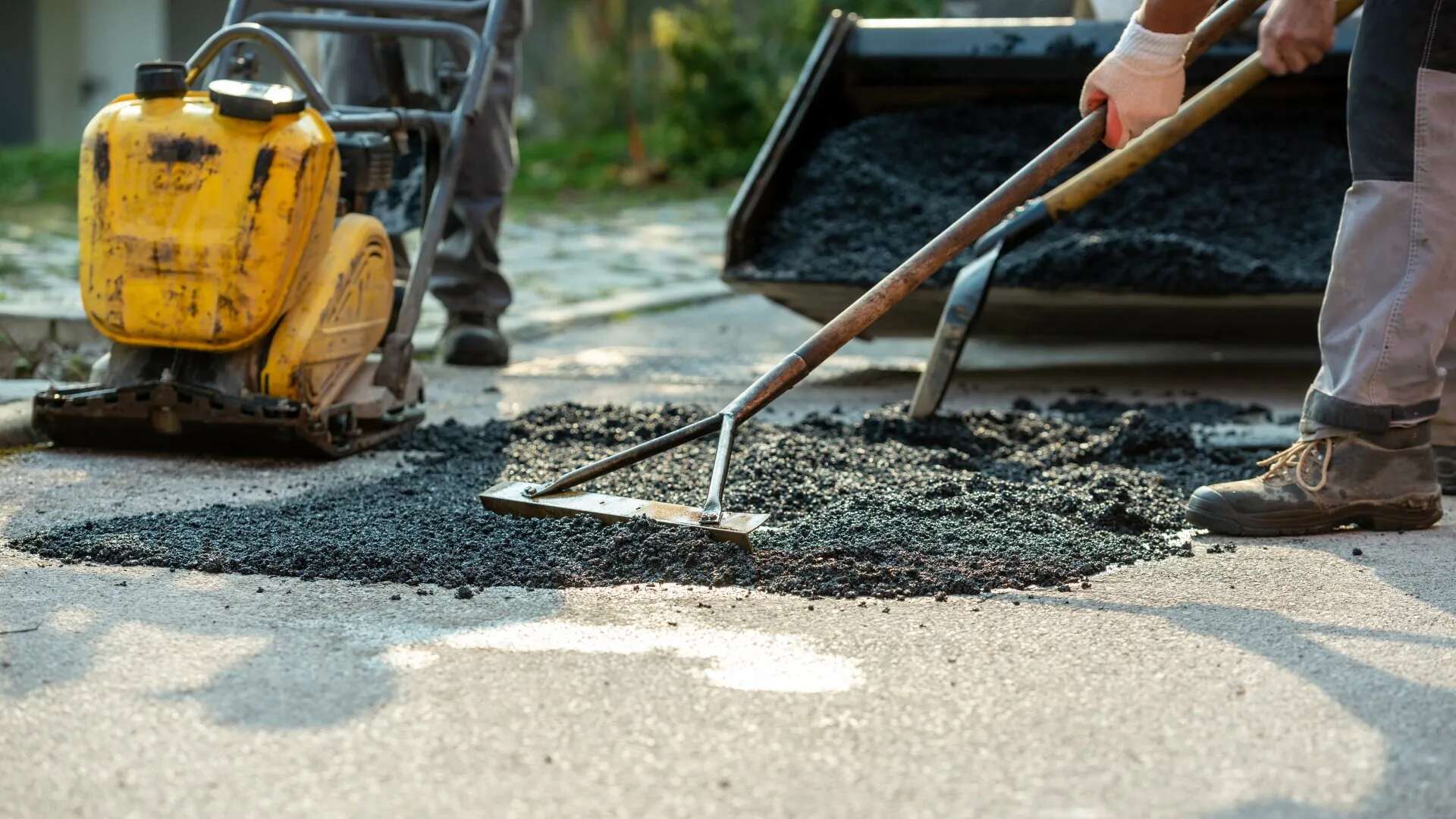Asphalt paving in Stevens Point, WI is used on a variety of different projects, including high-quality driveways, sidewalks, and much more. Regular maintenance of your asphalt is a wise decision because it helps to protect it from a multitude of weather-related issues that can be destructive to manage without help.
Thankfully, the following maintenance tips can provide you with the durable and reliable asphalt that you need for your driveway or parking lot. Make sure to follow these tips carefully to ensure that you don’t miss any signs or symptoms of severe asphalt damage.
Regular Inspection Avoids Issues
The best thing that you can do for your pavement is to take 30-60 minutes or so every month or two to inspect its surface. This “trick” might seem pretty obvious, but too few people perform this simple procedure. Take the time to look for a variety of common issues that can impact the surface and structure of your pavement. These issues include:
- Cracks – Even small surface cracks need to be addressed as soon as possible.
- Fading pavement markings – When your markings start to fade, your driveway may be ready to fail.
- Mold and mildew – These frustrating growths can affect the strength of your pavement.
- Grass and other plants – If you find that grass or other growths are appearing in your pavement, make sure to remove them to avoid excessive damage.
By examining your asphalt paving in this way, you spot problems before they become an issue and can get high-quality repairs done as soon as possible. Make sure to avoid waiting too long for these repairs, as you may cause more significant problems that will cost you a lot more money to repair.
Sealcoating Properly to Avoid Damage
You rented some sealcoating equipment, and you’re ready to protect your asphalt paving from damage. However, you need to make sure that you coat your driveway on a day that will have no rain and the temperature is over 50 degrees Fahrenheit. This temperature must be maintained for at least eight hours after application. Cooler temperatures may complicate this process and will weaken the integrity of your sealcoating treatment.
After you sealcoat your driveway, you need to wait at least 24 hours before you walk or drive on its surface. This curing time is essential and shouldn’t be ignored. For example, a properly-cured sealcoated driveway will resist damage better and will remain stronger than one that is walked on with impunity. Try to seal your pavement on a day that you don’t plan on going anywhere or when you’re out of town.
However, you need to make sure that you don’t seal your driveway too frequently or you might end up damaging it. Pavement sealcoating typically only needs to be done once every 3-4 years, though it may last longer if the surface is strong. Avoid coating too often to prevent unnecessary damage.
Knowing When to Repair Cracks
Cracks are likely the most significant problem your driveway or parking lot is going to experience. They can be very frustrating to manage because they can grow in size and persistence quite quickly. In many instances, these cracks can become so damaging that you’ll need to completely replace your driveway to avoid complications. Thankfully, spot repairs can help you easily avoid this issue. Here are a few guidelines for when you should consider repairing cracks in your asphalt:
- Size matters – You should seriously consider sealing any cracks that are one-inch long and one-quarter inch wide or larger. Waiting any longer could cause them to widen and deepen.
- Temperature is important – Crack repair procedures should be done on days when the temperature is above 50 degrees Fahrenheit to avoid issues such as poor sealant cooling.
- Crack types vary wildly – Cracks some in many different types, such as alligator cracks or longitudinal cracks. Each of these crack types has different repair methods, such as fixing the sub-base.
- Resurfacing must be done at some point – After you have repaired issues such as cracks or low spots, you should consider resurfacing your asphalt paving in order to avoid these issues in the future.
Most of the time, you should probably repair cracks the moment that you notice them on your driveway or parking lot. Small spot repairs can help to keep them from becoming too big of an issue. Try this test to gauge your asphalt damage – pour a bucket of water on one end and see where it flows. If it pools in one area or into various cracks, you typically need to start repairs as soon as possible.
Upgrade Your Sub-base
Lastly, you may want to upgrade your sub-base if you’re noticing issues with your asphalt paving surface. This trick is one that will cost you a bit of money at first, but will eventually save you a lot of cash on repairs. For example, a weak sub-base on shifting soil can cause a lot of damage to your asphalt surface by ruining its stability and causing cracks and other issues to develop through the slab.
A good sub-base needs to be at least 4-8 inches deep and made of solidly compacted granular fill. The density of the sub-base will vary depending on a variety of factors. For example, a looser – but still firm – sub-base may be necessary if the soil underneath doesn’t drain well. A firmer sub-base is appropriate if the soil drains well and needs extra support to avoid shifting.
This maintenance trick is one that is likely too difficult for most individuals to do themselves. While sealcoating is a possible DIY process, upgrading your sub-base will require professional help to finish. These experts can inspect your pavement for any issues and work hard to improve the sub-base without causing you any difficulties, such as cracked asphalt, for extended periods.
Professional Help is a Wise Choice
Though amateurs can do many of these tips, others require professional help. If you’re getting any maintenance that needs professionals to implement, you should probably have them do the rest of these repairs. In this way, you can ensure a uniform level of maintenance quality.
So please contact us at Custom Paving & Sealcoating if you need help maintaining your asphalt paving in Stevens Point, WI . We fully understand all of these tricks and have a few others up our sleeves that we can utilize to ensure that your asphalt is as strong as possible. This step can add durability and years of life to your pavement.

